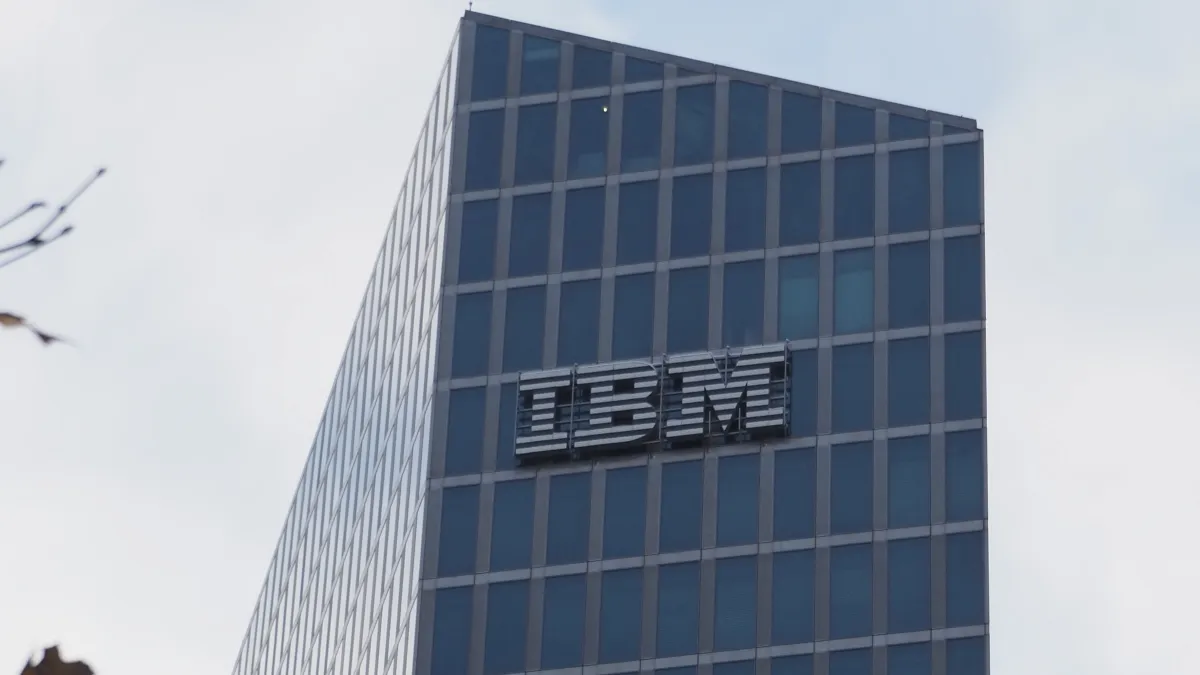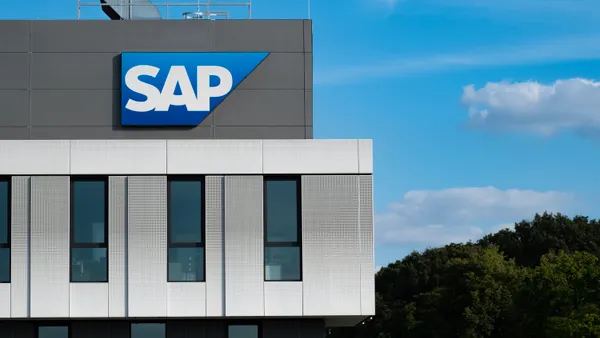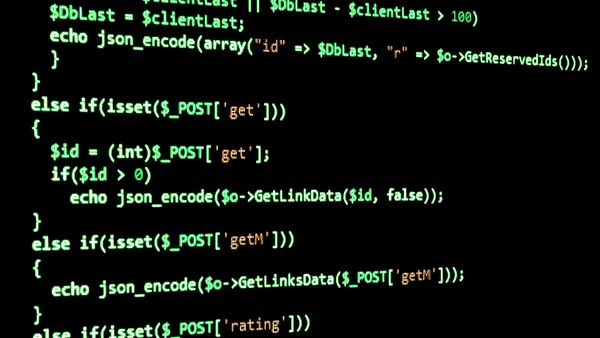Dive Brief:
- AI adoption and a shift toward hybrid-by-design IT strategies have raised the enterprise profile of the mainframe, according to a Wednesday IBM Institute for Business Value report. The company collaborated with Oxford Economics to survey more than 2,500 global technology executives.
- More than three-quarters of respondents said mainframe-based applications are integral to their digital transformation plans, an increase from less than two-thirds in the survey conducted last year. Nearly 4 in 5 respondents agreed that mainframes are “essential for enabling AI-driven innovation and value creation,” the report found.
- “We're coming back from a cloud-first swing,” Tina Tarquinio, VP of product management for IBM Z and LinuxONE, said. “Our customers are looking at how they can use all the investments they’ve made to get to better outcomes.”
Dive Insight:
The cornerstone of legacy IT has found an ally in an up-and-coming technology. Generative AI adoption triggered a resurgent appreciation for mainframe capabilities as models gravitate toward a goldmine of on-prem enterprise data.
Mainframes are repositories for some of the most valuable business data, according to Brian Klingbeil, chief strategy officer at IT services company Ensono. “You can’t do machine learning and cool AI stuff without good data,” he said.
Even after a sustained wave of cloud migrations, mainframes still handle 70% of global transactions by value, according to IBM. “It would be hard to book a train, plane or hotel, or even swipe a credit card without interacting with a mainframe,” Tarquinio said in April, on the occasion of the platform’s 60th birthday.
As enterprises modernize mainframe applications to enable flexible hybrid cloud ecosystems, IBM has doubled down on AI capabilities. The company’s next generation mainframe will carry the high-capacity Telum II chip and Spyre AI accelerator when it hits the market early next year, according to Tarquinio.
While enterprises commit significant resources to mainframe application modernization, the process remains a challenge, according to a Forrester report commissioned by Rocket Software. Full rewrites commonly fail on the first try, the survey found.
IBM trained the watsonx Code Assistant for Z to translate COBOL applications to Java, but restructuring the original programming is often all that’s needed.
“So far, most of our clients have been so happy just to get healthy COBOL,” said Tarquinio. “You can modernize your COBOL and keep those high-performance characteristics that you want for an application.”
Nearly three-quarters of enterprises use generative AI tools to help modernize mainframe applications, the IBM report found.
As veteran mainframe engineers retire, companies are grappling with potential talent shortages, too. Nearly two-thirds of respondents are actively recruiting mainframe personnel and just over half rely on third-party support for mainframe services.














